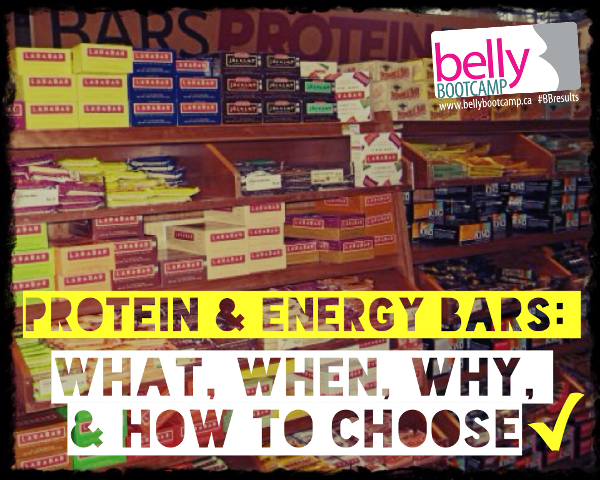
There is a time and place for supplements. Here’s how to know if protein bars are right for you, and which to select… or if you’re just buying into fancy marketing & “diet” promises.
We at BB frequently get solicited by supplements and diet companies to promote, sell or endorse their products. Our answer is always: No thanks. Why? Supplements make supplements companies (and the trainers and nutritionists who sell them) a great deal of money because they’re barely inspected or regulated, cheap and easy to make, and exist under a “halo” of health that tricks many of us into believing that pill, powder or bar can take our health to the next level instantly. Not so.
There is a place for supplements. They can be important in the diet of a competitive athlete or body builder. That said, plenty of athletes and body builders (and personal trainers) are very successful and healthy without relying on any more supplementation than our doctors would recommend – lots of water, a vitamin-D drop, and maybe some fish oil. Supplements can also be there for you when your body isn’t; currently I am taking a liquid iron supplement to counteract pregnancy-induced iron deficiency. Plenty of people rely on carefully chosen supplements to top up essential substances their bodies do not produce or absorb in sufficient quantity. But, let’s be honest, that’s not why people eat protein bars (and/or protein shakes). The real selling features of energy bars are that they’re fast and they taste good!
When I was younger I ate energy bars quite regularly. I used them as a quasi-meal on days that I was booked back-to-back with clients. Now I have more time to prepare my own meals and with several years of pregnancy/breastfeeding (going on 8 years nearly non-stop, if we’re counting…) I have been less keen to consume food products and more committed to consuming actual foods. You should try it. Food is great just as it is, without being compressed into bar form.
If you choose carefully, an energy bar can provide a fairly balanced snack or part of a meal on the run (perhaps combined with a small carton of milk or greek yogurt, and a piece of fruit or some veggies). If you aren’t careful you might get a hefty dose of sugar, saturated fat and sodium that rivals a fast food burger. Or the original “energy bar,” pictured below…

Not what you intended?
CHOOSE THE HEALTHIEST “ENERGY BAR.”
If you’re on the go, can’t cook, taking a road trip, or , sadly, stuck choosing your “lunch” from a gas station, here are some tips to help you choose a healthier energy bar:
- Choose bars that contain minimally processed natural ingredients like fruits, vegetables, nuts, seeds and grains;
- Choose bars that provide some fibre carbohydrates (not just sugar carbohydrates);
- Choose bars that provide at least 15-20 grams protein when using as a meal replacement;
- Choose bars that come in at or below 200 calories when using as a between-meals snack;
- Choose bars that use natural sweeteners such as honey or stevia, and choose the lowest sugar content available;
- Choose bars that are free of sugar alcohols (look for sorbitol, maltitol, xylitol, or erythritol in the ingredients) and artificial sweeteners as these can cause bloating, gas, and cramping;
- Choose bars that are free of hydrogenated (or partially hydrogenated) oils.
Overall, if the bar’s ingredient list contains 46 ingredients and/or sketchy words such as “chocolatey” you can probably do better.
Most importantly, use energy bars only as an occasional supplement to an otherwise balanced diet of ACTUAL FOODS. Energy bars are not designed to sustain your body on a regular basis.
The next time you reach for an energy bar, think: Could I just as easily grab something real and satisfy the same needs?
Milk, yogurt, beef jerky, nuts, and even fruit are readily available in convenience stores, gas stations and coffee shops. Fast, easy, and chock full of healthy protein and carbohydrates, a nut + fruit combo is my go-to power snack to keep me going for a couple of hours when I can’t stop for a meal. Even better, raw nuts and hearty fruits like apples can live in your purse or car glove compartment (tucked away from the sun) for several days so you’re ready when the next snack attack hits you. Give it a try!
